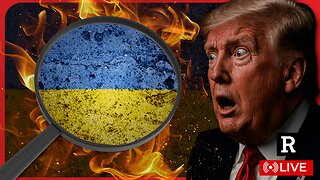Premium Only Content

Abbreviation of Dec? | Months of Year.
Abbreviation of Dec.
"Dec" is a shortened version of the word "December," is the twelfth and final month of the Gregorian calendar, which is widely used worldwide. It is known for being the last month of the year and is associated with various holidays and seasonal festivities.
December consists of 31 days and follows November. It is one of the seven months in a year with 31 days, along with January, March, May, July, August, and October. The name "December" comes from the Latin word "decem," meaning "ten." December was originally the tenth month in the ancient Roman calendar before January and February were added.
In the Northern Hemisphere, December marks the beginning of winter and includes the winter solstice, which usually falls around December 21st. The winter solstice is the shortest day and longest night of the year, after which the days gradually begin to lengthen.
Here are some additional facts and information about the month of December:
• December spans two zodiac signs. Until December 21st, the Sun is in Sagittarius, and from December 22nd onward, it moves into Capricorn.
• December is rich with holidays and observances celebrated worldwide. Some of the most notable ones include Christmas, Hanukkah, Kwanzaa, Boxing Day, New Year's Eve, and various other religious, cultural, and national holidays.
• December is a time of joyous celebrations and traditions across different cultures. Christmas decorations, gift-giving, caroling, lighting Advent candles, and setting up holiday trees are common practices in many countries.
• The birthstones associated with December are turquoise and zircon, representing prosperity, protection, and healing. The birth flower is the narcissus, symbolizing hope and rebirth.
• December weather varies significantly depending on the hemisphere. In the Northern Hemisphere, it is generally characterized by cold temperatures, snowfall, and winter activities. In the Southern Hemisphere, December marks the beginning of summer, with warmer temperatures and opportunities for outdoor recreation.
• December is often a time for reflection and looking back on the year that is ending. Many people take stock of their accomplishments, set goals for the upcoming year, and celebrate the achievements and challenges they have faced.
• Apart from the major holidays, December hosts various festivals and events worldwide. Some notable examples include the Geminids meteor shower, the Feast of Our Lady of Guadalupe, the Dubai Shopping Festival, and the December solstice celebrations at Stonehenge in the United Kingdom.
• December 4th is celebrated as National Cookie Day in the United States. It's a perfect opportunity to indulge in your favorite cookies and try out new recipes.
• The Nobel Prize award ceremonies take place on December 10th every year in Stockholm, Sweden, except for the Nobel Peace Prize, which is awarded in Oslo, Norway.
• In addition to the birthstones and flowers mentioned earlier, December is associated with various symbols. It is often represented by images of snowflakes, evergreen trees, holly, mistletoe, and ornaments, all of which are commonly used in holiday decorations.
• December is recognized as Universal Human Rights Month, emphasizing the importance of promoting and protecting human rights around the world. December 10th is also observed as Human Rights Day, commemorating the adoption of the Universal Declaration of Human Rights by the United Nations in 1948.
• Occasionally, December is the month when a total solar eclipse occurs. A total solar eclipse happens when the Moon passes between the Earth and the Sun, blocking the Sun's light and casting a shadow on certain parts of the Earth.
• December 12th is celebrated as Poinsettia Day in honor of Joel Roberts Poinsett, the U.S. ambassador to Mexico, who introduced the poinsettia plant to the United States in the early 19th century.
• In South Africa, December 16th is observed as National Reconciliation Day. It commemorates the end of apartheid and promotes reconciliation and unity among all South Africans.
• December 11th is designated as International Mountain Day by the United Nations. It aims to raise awareness about the importance of mountains for ecosystems, communities, and water resources.
• The prestigious Time magazine's Person of the Year, which recognizes the individual or group that has had the most significant impact on the world, is announced in December.
• December 1st is celebrated as Antarctica Day to commemorate the signing of the Antarctic Treaty on this day in 1959. It promotes awareness of the importance of the Antarctic continent and the need for its protection.
Music by: https://www.chosic.com/free-music/all/
-
 0:11
0:11
NorthernHack
2 years ago5 Months in a Year
6 -
 1:19
1:19
Bella_G
2 years agoBella sings months of the year
9 -
 1:13:18
1:13:18
Glenn Greenwald
3 hours agoTrump Meets with El Salvador's Bukele: A Tyrant or a Model to Copy? Plus: Trump's Proposal to Deport Citizens There | SYSTEM UPDATE #439
52.1K59 -
 LIVE
LIVE
The Amber May Show
8 hours agoWomen Of Rumble 04-15-25
71 watching -
 1:00:55
1:00:55
BonginoReport
5 hours agoCalifornia BROKE After Bankrolling Illegals’ Healthcare - Nightly Scroll w/ Hayley Caronia (Ep.27)
84.8K61 -
 1:13:35
1:13:35
Kim Iversen
4 hours agoYou Cheered When They Deported Him. Now They’re Building Black Sites for You.
75.2K75 -
 1:18:29
1:18:29
Redacted News
5 hours agoSHOCKER! Trump's latest would-be ASSASSIN has Ukraine connections, Real ID backlash | Redacted
156K129 -
 4:49
4:49
The Official Steve Harvey
1 day agoSteve Harvey's Motivational Talks 💭✨ Dream Big, Work Hard, and Make It Happen! ✨💭
28.1K4 -
 54:20
54:20
LFA TV
9 hours agoJCPOA 2.0 | TRUMPET DAILY 4.15.25 7PM
18.5K1 -
 1:46:20
1:46:20
vivafrei
11 hours agoBilly Baldwin DESTROYED! Canadian Liberal Politicians are THE WORST! Interview with PPC & MORE!
104K51